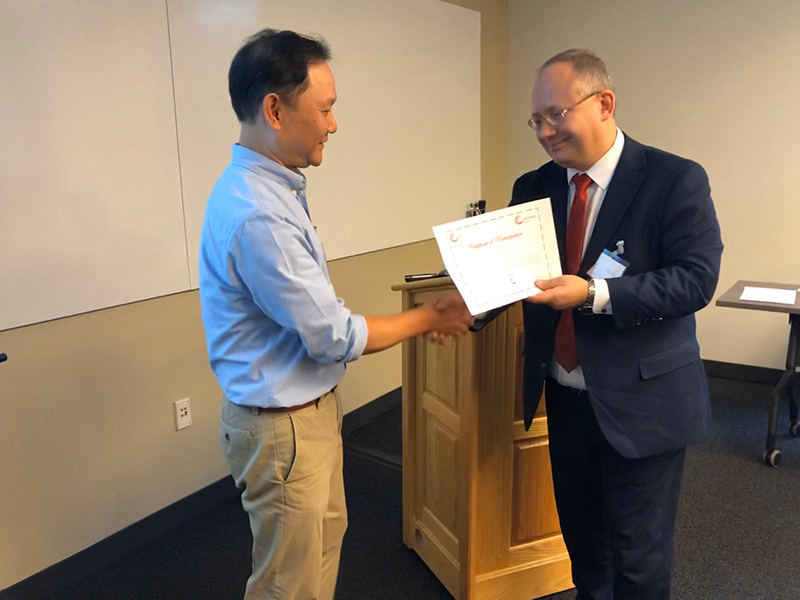Professor Leung Chi-Hung, Professor of SEC and Co-Director of I-WELL attended two conferences recently to present results of using eye-tracker to evaluate drug abuse rehabilitation. The 11th Mainland, Hong Kong and Macau Conference on Prevention of Drug Abuse was held in Macau from 16 to 18 October, 2019. This conference aims to exchange professional experience in tackling drugs and developing collaborative interactions among experts, scholars and government officials within the region, i.e. the Mainland, Macau and Hong Kong. The 12th Academic International Conference on Social Sciences and Humanities was held in Boston from 18 to 20 November, 2019. The aim of this conference is to provide a platform and stimulate discussion on key issues affecting work and employment relations, psychology, sociology, anthropology, linguistics and literature, information sciences, religious studies, culture, law and international relations.

In these conferences, Professor Leung presented his paper, titled “Drug-Related Attentional Bias in Drug Abusers and Rehabilitated Drug Abusers: An Eye-Tracking Study”, on how his research team in IWELL applied eye-tracking technology together with a series of implicit psychological tasks to evaluate drug dependence of past psychotropic drug abusers.
This is a longitudinal project partnering with “Wecycle III”, an integrated sport intervention therapy, docent and volunteer training programme for past drug abusers, designed and run by the Hong Kong Lutheran Social Service. Apart from the use of traditional questionnaires for intervention evaluation, this is the first project in Hong Kong which uses implicit psychological tasks combined with eye-tracking technique to assess the effectiveness of the intervention training programme in a more objective manner. As a follow-up, Professor Leung’s research team will further examine subjects’ attentional bias towards drug abuse after the training programme and the long-term effect.